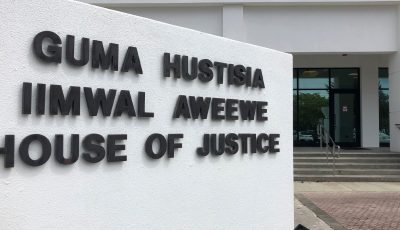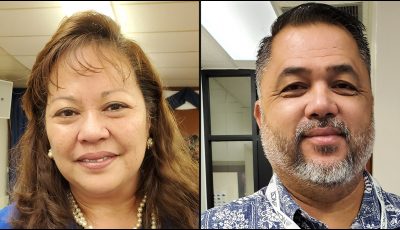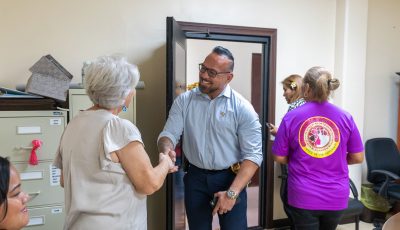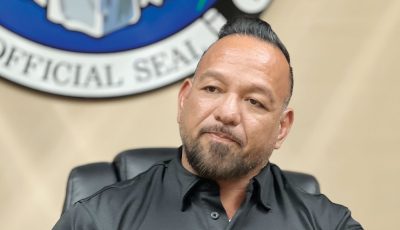‘Crisostomo’s lawyers should disclose privileged info’
The Department of Corrections and DOC Commissioner Vincent Attao want the Superior Court to order the three lawyers of convicted murderer and rapist Joseph Acosta Crisostomo to be allowed to disclose privileged communications and documents related to his claims that he got ineffective legal assistance in the case that got him convicted.
DOC and Attao, through assistant attorney general Robert J. Pickett, asked the court to declare a partial waiver of attorney-client privilege in Crisostomo’s case.
By claiming that he got ineffective assistance from his lawyers—Janet H. King, F. Randall Cunliffe, and Jeffrey Moots—Crisostomo has waived the attorney-client privilege, Pickett said, and DOC and Attao cannot fairly defend themselves without access to privileged information.
Crisostomo wrote a handwritten petition for habeas corpus addressed to Superior Court Presiding Judge Robert C. Naraja, in which he accused King, and her two co-counsels from Guam, of providing him ineffective assistance. He named DOC and Attao as respondents in his petition.
In DOC’s and Attao’s motion, Pickett said that when a claim for ineffective assistance of counsel is raised, the court should issue a protective order that identifies the issue on which a waiver of attorney-client privilege is reasonably necessary to fairly respond to the allegations.
He said the order should and authorize the use and disclosure of those materials for the purpose of defending the claims in the habeas proceeding.
Pickett said Crisostomo first claimed that he told King that he wanted Cunliffe and Moots present for trial, but that King, who was his lead counsel, filed a motion to proceed without them.
Crisostomo said King did not tell him about it.
Crisostomo further alleges that King threatened him to make him tell the judge that he wanted to proceed without Cunliffe and Moots.
In his second ground, Crisostomo asserts that Cunliffe and Moots rendered ineffective assistance of counsel by not appearing at this trial.
The defendant alleges that Cunliffe and Moots failed to review the discovery in this case which was in their possession for a year despite knowing of the trial date six months in advance.
Crisostomo alleges that King drafted letters containing false information that she then would have Crisostomo rewrite in his own word and deliver to the judge.
Crisostomo alleges that he has copies of these letters, but they are not attached to the petition.
Further, he alleges that King erred by advising him not to testify.
Crisostomo makes a general allegation that his counsels were ineffective on his appeal to the CNMI Supreme Court.
His allegations center around a failure to cite relevant standards of review, and the Supreme Court’s repeated criticism of King’s brief.
Crisostomo alleges that his counsels failed to object to pre-trial, at trial, and during the appeal to testimony of a police detective that he had interviewed a witness who had seen Crisostomo with a cell phone resembling the victim’s missing cell phone.
Pickett said that, by making these allegations, Crisostomo has waived his attorney-client privilege in two ways.
First, Pickett said, Crisostomo disclosed numerous privileged communications, and second, he placed the competency of his counsel in issue.
Pickett said DOC and Attao must be permitted to fully investigate Crisotomo’s assertions.
He said DOC and Attao cannot prepare to litigate this claim unless King, Cunliffe, and Moots divulge all relevant privileged communications (both written and oral) and work product.
Naraja assigned Crisostomo’s petition to himself. Associate Judge Joseph N. Camacho presided over the trial. He sentenced Crisostomo to life imprisonment after a jury found the then-40-year-old Crisostomo guilty of first degree murder, kidnapping, sexual assault in the first degree, and robbery
The victim, Emerita R. Romero, 37, was last seen boarding a car near her house in Garapan in the early morning hours of Feb. 5, 2012. She was supposed to meet her boyfriend in Chalan Piao. Two days later, Federal Bureau of Investigation agents found her body in a small bathroom at the abandoned La Fiesta Mall in San Roque/As Matuis.
Last July, the CNMI Supreme Court affirmed Crisostomo’s convictions.



























